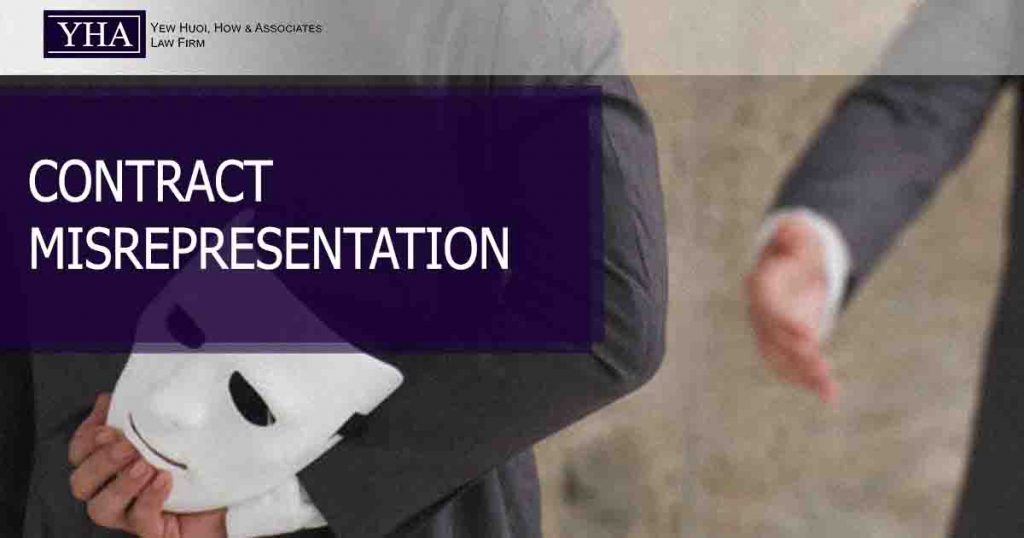Giselle had a liking for the unimpeded view from Happy Residence. After the execution of the sale and purchase agreement (SPA), Giselle decided to sue Happy Residence’s developer (Ceria Developer) for innocent misrepresentation on the basis that the developer had falsely represented to her that the ongoing MRT construction behind Happy Residence would not obstruct her enjoyment of the view. Giselle claimed that it would impede her enjoyment of the view and wanted to rescind (revoke) the SPA. Ceria Developer denied the claim, claiming that they had not made a representation and Giselle was aware of the MRT line construction.
Q: What is misrepresentation?
A: A false statement of fact that induced a party to enter into a contract, which he suffered detriment upon relying on it.
Q: Who needs to prove misrepresentation?
A: The party who claims misrepresentation (in this case Giselle) has to give evidence to prove misrepresentation to establish her claim.
Q: What is innocent misrepresentation?
A: If the maker of the statement did not genuinely believe the statement he made was false, the representation is deemed innocent misrepresentation.
Q: Is there a misrepresentation in this case?
A: If Giselle had merely relied on what was on the brochure (that there is an MRT line behind Happy Residence) to claim that Ceria Developer had induced her into purchasing such a unit, there is no misrepresentation. If Ceria Developer had told Giselle that the view of her unit is not obstructed, then there is misrepresentation.
Q: Can Giselle cancel the SPA?
A: Depends. Giselle can rescind the SPA if there is misrepresentation.

